Zaid Marji
Resoling Open-textured Rules with Templated Interpretive Arguments
Dec 19, 2022
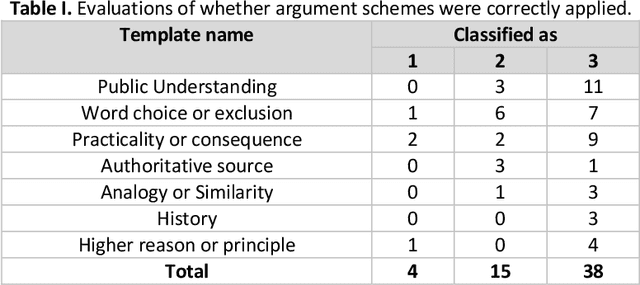
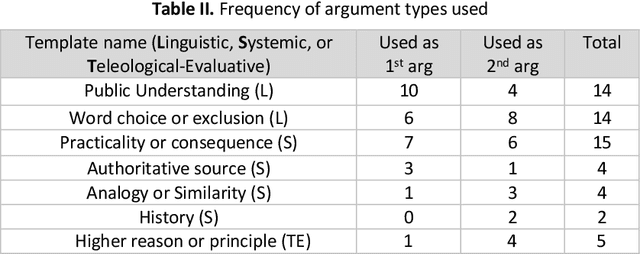
Abstract:Open-textured terms in written rules are typically settled through interpretive argumentation. Ongoing work has attempted to catalogue the schemes used in such interpretive argumentation. But how can the use of these schemes affect the way in which people actually use and reason over the proper interpretations of open-textured terms? Using the interpretive argument-eliciting game Aporia as our framework, we carried out an empirical study to answer this question. Differing from previous work, we did not allow participants to argue for interpretations arbitrarily, but to only use arguments that fit with a given set of interpretive argument templates. Finally, we analyze the results captured by this new dataset, specifically focusing on practical implications for the development of interpretation-capable artificial reasoners.
Probing the Natural Language Inference Task with Automated Reasoning Tools
May 06, 2020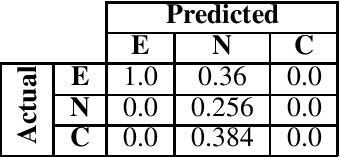

Abstract:The Natural Language Inference (NLI) task is an important task in modern NLP, as it asks a broad question to which many other tasks may be reducible: Given a pair of sentences, does the first entail the second? Although the state-of-the-art on current benchmark datasets for NLI are deep learning-based, it is worthwhile to use other techniques to examine the logical structure of the NLI task. We do so by testing how well a machine-oriented controlled natural language (Attempto Controlled English) can be used to parse NLI sentences, and how well automated theorem provers can reason over the resulting formulae. To improve performance, we develop a set of syntactic and semantic transformation rules. We report their performance, and discuss implications for NLI and logic-based NLP.
Scenarios and Recommendations for Ethical Interpretive AI
Nov 05, 2019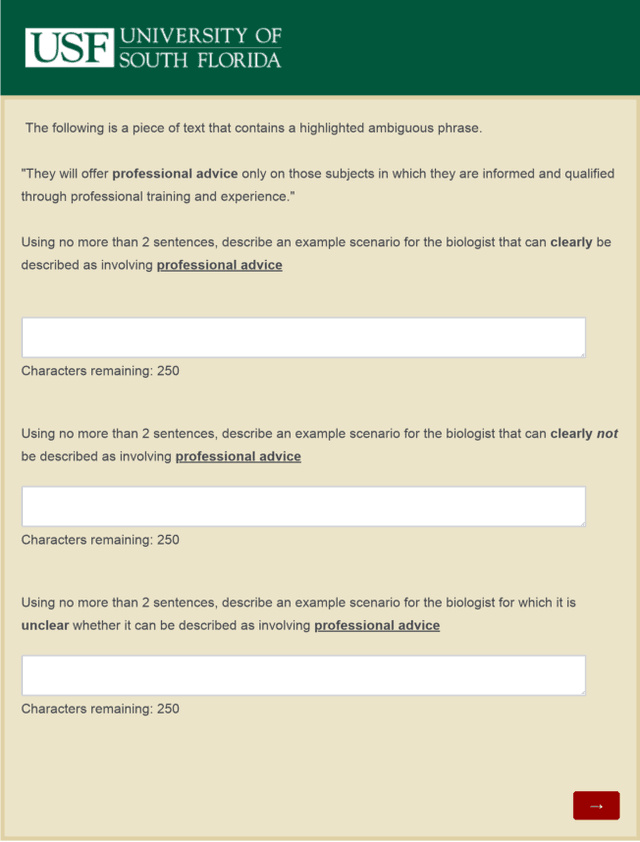
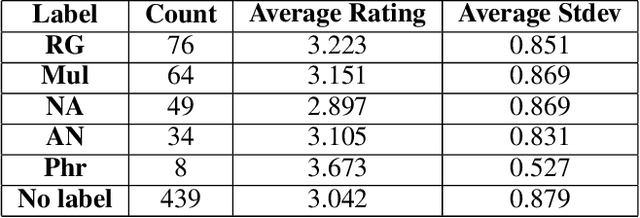
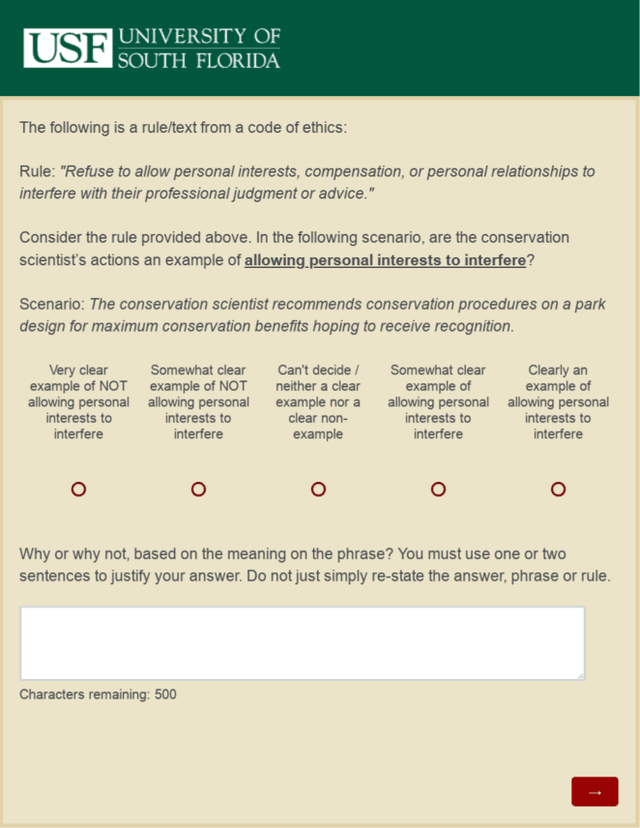
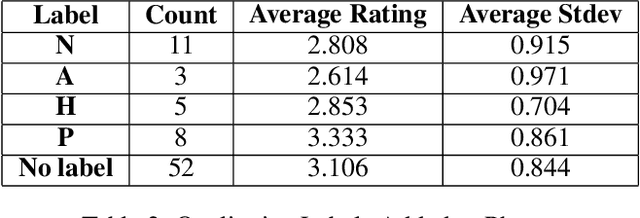
Abstract:Artificially intelligent systems, given a set of non-trivial ethical rules to follow, will inevitably be faced with scenarios which call into question the scope of those rules. In such cases, human reasoners typically will engage in interpretive reasoning, where interpretive arguments are used to support or attack claims that some rule should be understood a certain way. Artificially intelligent reasoners, however, currently lack the ability to carry out human-like interpretive reasoning, and we argue that bridging this gulf is of tremendous importance to human-centered AI. In order to better understand how future artificial reasoners capable of human-like interpretive reasoning must be developed, we have collected a dataset of ethical rules, scenarios designed to invoke interpretive reasoning, and interpretations of those scenarios. We perform a qualitative analysis of our dataset, and summarize our findings in the form of practical recommendations.
 Add to Chrome
Add to Chrome Add to Firefox
Add to Firefox Add to Edge
Add to Edge